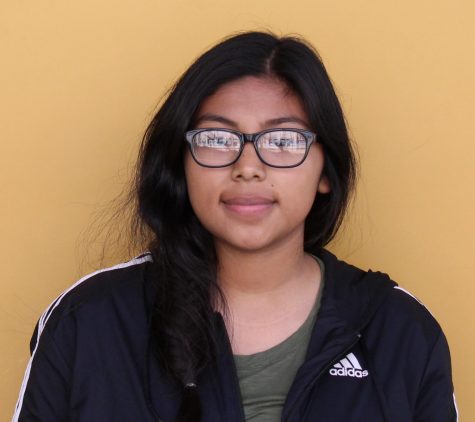Ben Matik achieves much off and on the battlefield
February 28, 2018
The Omaha North hallways are nothing compared to what Ben Matik has walked through.
Security guard Ben Matik was born on January 1, 1981, in South Sudan Africa.
In the year of 1983, a civil war broke out between South Sudan and Sudan. Roughly two million people died from war, famine, and diseases. In the end, South Sudan gained independence, but most were left damaged.
Matik was only eight years old and one of the hundreds of children who were forced to join the military. His brother, Ding, was 18 years old when he was also drafted.
“We were forced into the military because if we stayed back home, the enemy would come and they would kill you, especially if you were a boy. Because the enemies thought if the boys grew up, they would become men and fight [the enemies], and they didn’t want that,” Matik said.
He sacrificed his childhood to fight for the independence of his people. He thought of running away, but knew he would be killed. He said that he was sad, but had no other options.
Matik would train for two years and would not hold a gun until he was 11.
“[My father] said, ‘No matter what you go through, you can make it. Believe in yourself and do the right thing’,” he said.
After their separation with no other parental figure, Matik’s brother became his role-model. There were times when they would get separated for six months, and Matik said those time would be rough.
“I would have to cook for myself and somedays we didn’t have food and we would have to go look for food to eat. . . Sometimes we would go three or five days without food,” said Matik.
Being in the army not only taught Matik how to take care of himself but also take care of other people. At times, he would have to help others as the other soldiers would help him.
One day in 1999, the soldiers were planning to cross a deadly river. Many of the young children did not know how to swim. Because of this, the older soldiers helped the young children cross the river. Even with this help, 4,000 lives were lost that day. He said this memory was a nightmare and it keeps coming back to him.
Matik was 14-years-old holding 4k37s and making decisions that would change his life forever.
“At first. . . I would be afraid, but then I just got used to it,” Matik said.
Five years later, after joining the military, Matik was told by his commander that his mother had passed away. She contracted a sickness while she was running away from the Sudanese soldiers and died from the lack of professional medical care. Matik was heartbroken to have lost his mother, but was expecting something like this to happen.
After losing his mother, Matik also lost his brother. To this day, he does not remember how old his brother was when he died. They were separated for years, and Matik did not know his brother had died until three months after his death.
When Matik was 18, he and the other soldiers were warned that the Sudanese soldiers would be on their territory in six hours. The Sudanese soldiers were there in less than six hours. This caught Matik by surprise.
Shots were fired, people fell to the ground. Screams of those who fell to their death moved through the air. Then there Matik laid, sure that he would not make it.
“I got shot [four times]. I took my shirt, and wrapped it around my leg to stop the bleeding. I pretended like I was dead. There was another guy next to me crying, and [the enemy] kicked me. But I pretended I wasn’t breathing and he said ‘oh, he’s dead’, and kept walking. I didn’t get help until the next day,” Makit said.
He was sent to Kenya for recovery and then became a refugee. Matik helped the other children with their homework, and did whatever he could to help.
Matik started a group called “South Sudanese Community”. This group gave speeches about the life these children had to live in Africa. Because of these speeches, they were able to raise around 1.5 million dollars. This money gave three hundred people the opportunity to go to school and get an education.
With this money, Matik moved to California and was able to earn his GED. He was able to then get his associates degree in 2007.
Matik knew six languages at that time and had to learn English. This would be another difficult task for him.
“When I came to America, I didn’t speak English. It took me a while to get my high school diploma and my degree,” Matik said.
After living in California for six years, Matik went back to Africa to see his father before he passed away.
He was too late. His father had already died.
He stayed in Africa for five years focusing on community service work. During this time, he built a house there and met his wife.
Matik decided to move to Omaha, Nebraska in 2016 because of a friend he met in California.
Matik is now married, has four children and is working on getting his bachelor’s.
“I can’t really think about the problems I had. I can’t let it bring me down. If I keep those bad memories, it’s not gonna be good for me,” said Matik.


